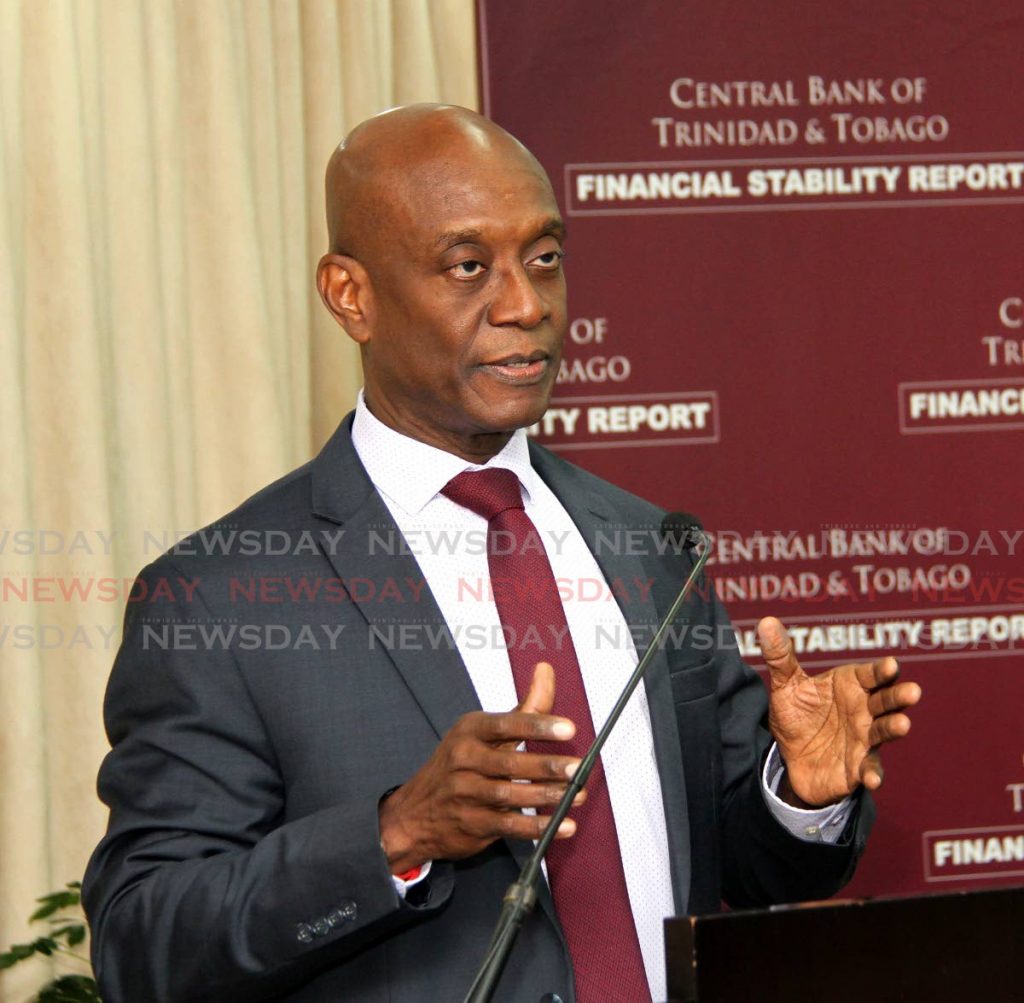Central Bank Governor: Room for optimism, but pandemic exit needed

CENTRAL Bank Governor Dr Alvin Hilaire is confident that Trinidad and Tobago will determine the best way to exit the covid19 pandemic.
He expressed his optimism at the virtual launch of the bank's 2020 financial sustainability report (FSR) on Thursday.
"We are at a delicate juncture. We have a financial system that is stable (and) steady. But we are not complacent."
While the report showed a contraction in domestic economic activity last year, Hilaire said TT's external buffers have been useful to help mitigate the effects of the pandemic.
The report showed in 2020 that gross official reserves rose marginally to US$7 billion (8.5 months of import cover) from US$6.9 billion (7.7 months of import cover) in 2019. This increase, it said, was driven mainly by higher inflows associated with external borrowings and withdrawals from the Heritage and Stabilisation Fund (HSF) to cushion the effects of the pandemic.
Hilaire said, "We have a lot to do. We are optimistic of the future. We have the right capacity."
But he added, "What we want is a durable exit from this pandemic. That is the fundamental thing that we need to have."
One of the factors that could quicken TT's exit from the pandemic, he said, is a population that is resilient through covid19 vaccination, which could ease pressure on businesses.
"You can then reopen activity and things become more buoyant, etc.
"We have some resilience still, but we don't want to test this thing for too long."
The report said a resurgence of domestic covid19 cases in the second quarter of 2021 and the reinstatement of containment measures "can further impinge on an already fragile recovery with knock-on effects for the financial sector".
Hilaire and Inspector of Financial Institutions Patrick Solomon agreed with the report's position that the financial sector has been resilient despite the challenges posed by covid19. The report said, "Financial soundness indicators (FSIs) for the banking and insurance industries suggested that risks related to the pandemic were largely contained."
It added, "Institutions maintained healthy capital and liquidity buffers, while contending with deterioration in asset quality and profitability ratios."
In terms of the national debt, Hilaire said the bank's position is that "we frown upon undue increases in debt commitments if they are not warranted.
"In certain cases, you have to increase your debt. You have to borrow more than you are, and not to spend more than what you are earning, if you don't have a choice or things are very difficult."
Hilaire added, "The pandemic is one such...and in fact the most dramatic instance of this where across the world, countries are spending more, than they are earning via taxes."
Saying "You have to have your country survive," Hilaire added, "However we do believe that this should be measured, any expenditure should be well-targeted and should be precise."
He also cautioned against "building up expectations that become difficult to unwind."
He reiterated, "We believe a temporary increase in debt is warranted. It should be accompanied by a programme to eventually wean yourself out of borrowing and then reducing over time."
The report said net public sector debt-to-GDP increased from 65.5 per cent in 2018/2019 to 80.9 per cent in 2019/2020.
This was attributed to a sizeable shock to government revenue in 2019/2020 due to lower energy prices and reduced non-energy tax receipts and budget financing (including withdrawals from the HSF, some external borrowing and domestic bond placements).


Comments
"Central Bank Governor: Room for optimism, but pandemic exit needed"